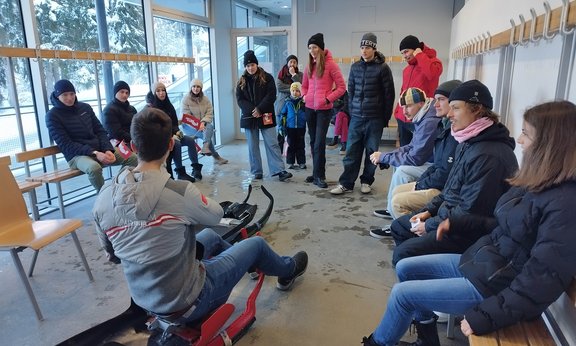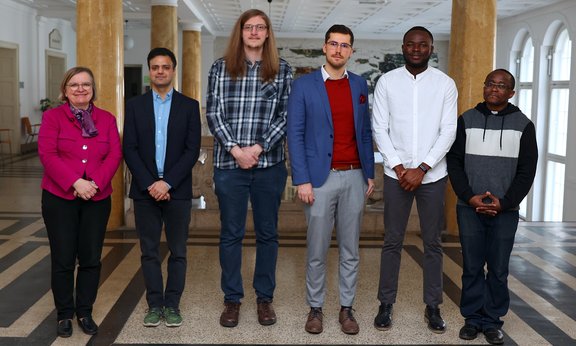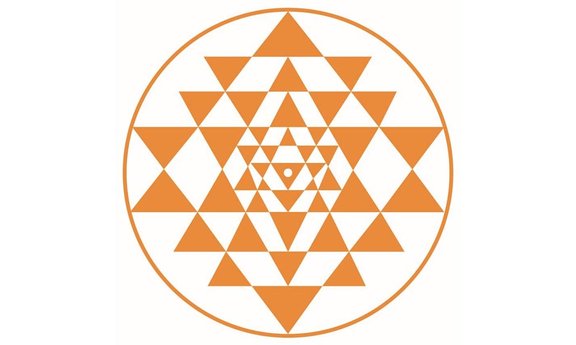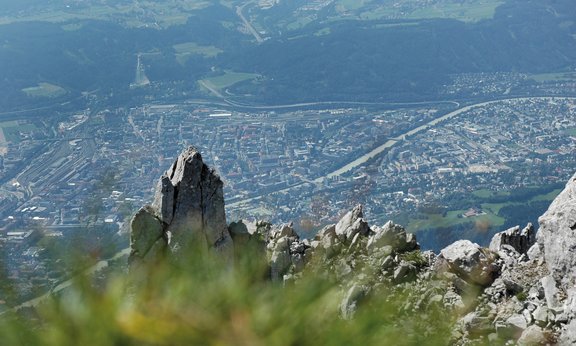Bachelor’s Programme Sports Management
Would you like to understand sport as a social phenomenon and recognise developments in and for sport?
Sport is a big economic business. It requires experts to develop and implement organisational structures to manage the complexities of clubs and associations and the huge number of commercial sport providers. The students of the Bachelors’s Degree Program in Sport Management acquire qualifications and knowledge for this occupational field.
Please note: the language of instruction for this programme is German.
Study Code
UC 033 626
Supplemental Examinations
Examination to demonstrate suitable physical fitness must be completed satisfactorily before admission to the study programme.
FAQ
Graduates are able to produce, evaluate, assess and implement scientific developments in the field of sports management and to apply them in interdisciplinary contexts. They possess theoretical and methodological problem-solving skills.
Sports play a considerable role in the economy (sporting goods industry, tourism, sporting events). The sports world, characterized by multifaceted organizations and associations and wide-ranging commercial providers, requires considered organizational structuring that can only be achieved by specialists. Graduates of the Bachelor's Programme Sports Management acquire the following qualifications and knowledge for practical application in vocational fields:
- Core subjects of sports science: kinesiology, biomechanics, training science, sports education, sports psychology, sports sociology, medical and historical basics of sports science;
- Business and economic fundamentals: accounting and bookkeeping, management, marketing, commercial decisions;
- Fundamentals of sports management, including project experience, sports marketing and sports economics;
- Sports-related legal fundamentals;
- Practical experience and abilities in basic sports, recreational sports, and various trend sports
- Knowledge and application of didactic and organizational fundamentals
- Communicative abilities and presentation techniques.
Specific vocational fields for graduates of the Bachelor's Programme Sports Management include the sporting goods industry, tourism and recreational sports, event management, public administration, sports centre management, promotion of events and athletes, commercial sports providers, company sports, association and organization management, health care centre management, resorts and fitness studios.
Graduates tracking: Shows which occupational fields students enter after graduation
Master's Programmes
More offers
Faculty of Psychology and Sport Science Examination Office Information for students with disabilities
Curriculum
From the field

Mit ISW-Buddies zur Rodel-EM
ISW-Buddies blickten Mitte Jänner mit 20 Sportstudent*innen hinter die Kulissen der Rodel-Europameisterschaften. Dabei war auch Reinhard Egger, Vizeeuropameister 2019. Die erstsemestrigen Student*innen und ihre Buddies zeigten sich sowohl von den gewonnen Einblicken während der Führung als auch der Wettkampfatmosphäre vor Ort begeistert.

Sportmedizinische Labore eröffnet
Am Campus Sport der Universität Innsbruck wurden Anfang Juni neue leistungsphysiologische Labore der Arbeitsgruppe von Sportmedizinerin Anne Hecksteden eröffnet. Im Beisein von Landesrätin Cornelia Hagele startete gleichzeitig eine neue Studie zu den gesundheitlichen Vorteilen von regelmäßiger körperlicher Aktivität in der Tiroler Bevölkerung.

Neues Gesetz: Training als Therapie gestärkt
Das Institut für Sportwissenschaft der Universität Innsbruck begrüßt die gesetzliche Ausweitung der Berufsrechte von Trainingstherapeut:innen. Diese können zukünftig auch selbständig therapeutische Unterstützung anbieten und so zu einer besseren Versorgung und individuellen Betreuung von Patient:innen beitragen.

Acht Doktoratsstipendien vergeben
Ende Februar 2023 wurde die dritte Tranche der Doktoratsstipendien aus der Nachwuchsförderung 2022 im Archäologischen Universitätsmuseum im Hauptgebäude vergeben. Acht Dissertant*innen aus sieben Fakultäten können sich über eine Förderzusage freuen.



















